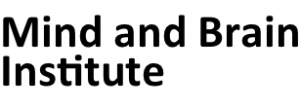“How Do We Want to Live?” now Available in English
My book “Wie wollen wir leben?“, which was published in October 2020, is now available in English.

Here is the preface of the book again:
“From the very beginning of my medical studies, I knew that I wanted to become a brain researcher. The brain was the most complex and difficult organ to understand, but it was also by far the most fascinating. It was a mystery to me how anyone could be interested in such mundane organs as the liver, the prostate, or even the heart. However, the more I became involved with the various aspects of neuroscience – for example, during my practical year in neurology – the clearer it became to me that dealing with diseases of the brain and nerves would not be enough. To this day, what interests me most are the questions about the basis and origins of mind, psyche and consciousness. So I decided to become a psychiatrist, and I have not regretted it to this day. No medical field is as diverse and multifaceted as this one, and while on the one hand you deal with the basic questions of being human, on the other hand you have to deal with suffering people every single day, to whom you have to offer comfort and help. This is a fascinating and inspiring field of tension that maintains and promotes alertness and creativity.
My first academic teacher was a renowned “biological psychiatrist” and psychopharmacologist, and I owe my path to an academic career to him. In the course of years of clinical and scientific work, I thus also acquired a certain competence in psychopharmacology. Interfering with brain chemistry through chemical substances is an exciting field. The possibilities it has opened up for the treatment of severe mental disorders are impressive, but there is no doubt that poorly conducted pharmacotherapy can also do harm. For decades now, I have also been concerned with the question of how these substances exert their effects. Closely related to this is the question of how the activity of nerve cells gives rise to psychological experience or even an awareness of oneself. However, I have always been sceptical of ideas that one only has to intervene specifically enough in the brain chemistry to ultimately stop any mental suffering, and people who were completely convinced – not convincing – that it was only a matter of time until we knew enough about the brain to banish psychiatric illnesses from the world astounded me. For me, the experience of self has remained a mystery, and our failure to understand how it arises fills me with humility.
Now I have the feeling that the voices (scientists, brain researchers, but above all psychiatrists) who consider the human being to be a complex biomachine that only needs to be understood well enough to eliminate depression and anxiety are becoming louder and more dominant. Psychological experience is here only an epiphenomenon of biological function. People like to compare the brain to a computer, and artificial intelligence is soon to be able to simulate brain function so well that a mental disorder can be detected before it arises, and if it does, the computer will help us cure it with molecular precision by analyzing all our “biomarkers.” The projection goes so far that an Israeli historian tells us that the intervention in our brain is the path to “global happiness”.
Is this just a competition of ideas, a discourse among scientists? I am convinced that there is much more at stake here. It is about a dominant, very reductionist worldview that determines how we think about ourselves and that permeates our culture. Our worldviews, however, are what determine how we live with each other, how we work, how we educate ourselves, and what kind of health care system we want. We have accumulated an enormous amount of knowledge about how our genes and our biology determine our thoughts, feelings and actions. However, we tend to forget the enormous room for manoeuvre we have. Happiness is not created in the individual brain, but in the social interaction between people. And how we – actively and consciously – shape these interactions will determine our future.”
You can buy the book in the Springer book store or at the German or International Amazon. I’m very much looking forward to your comments.

